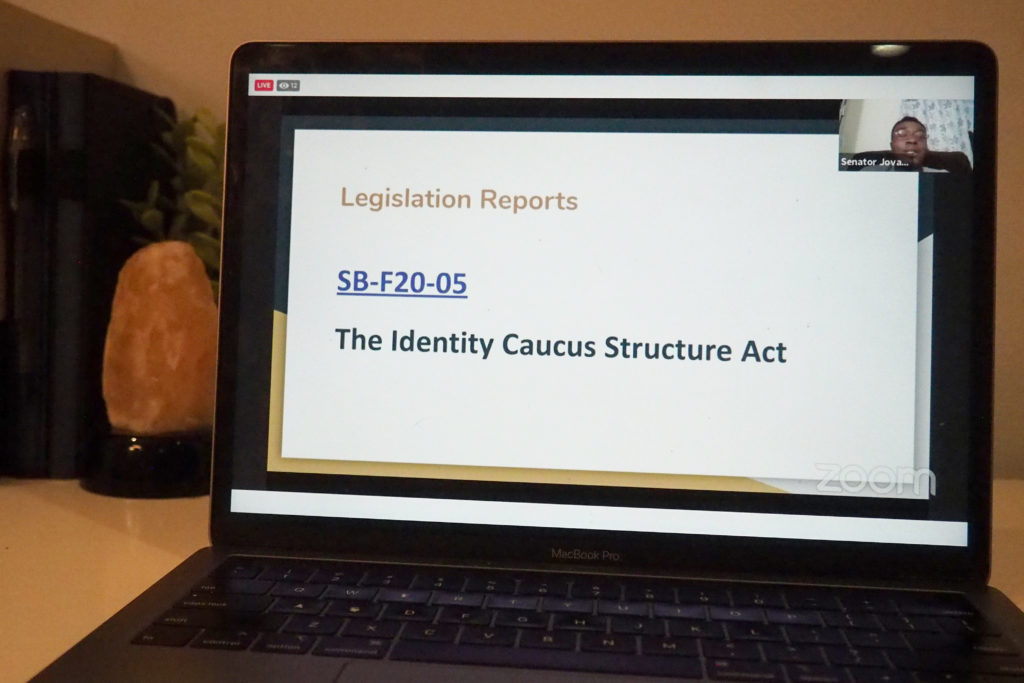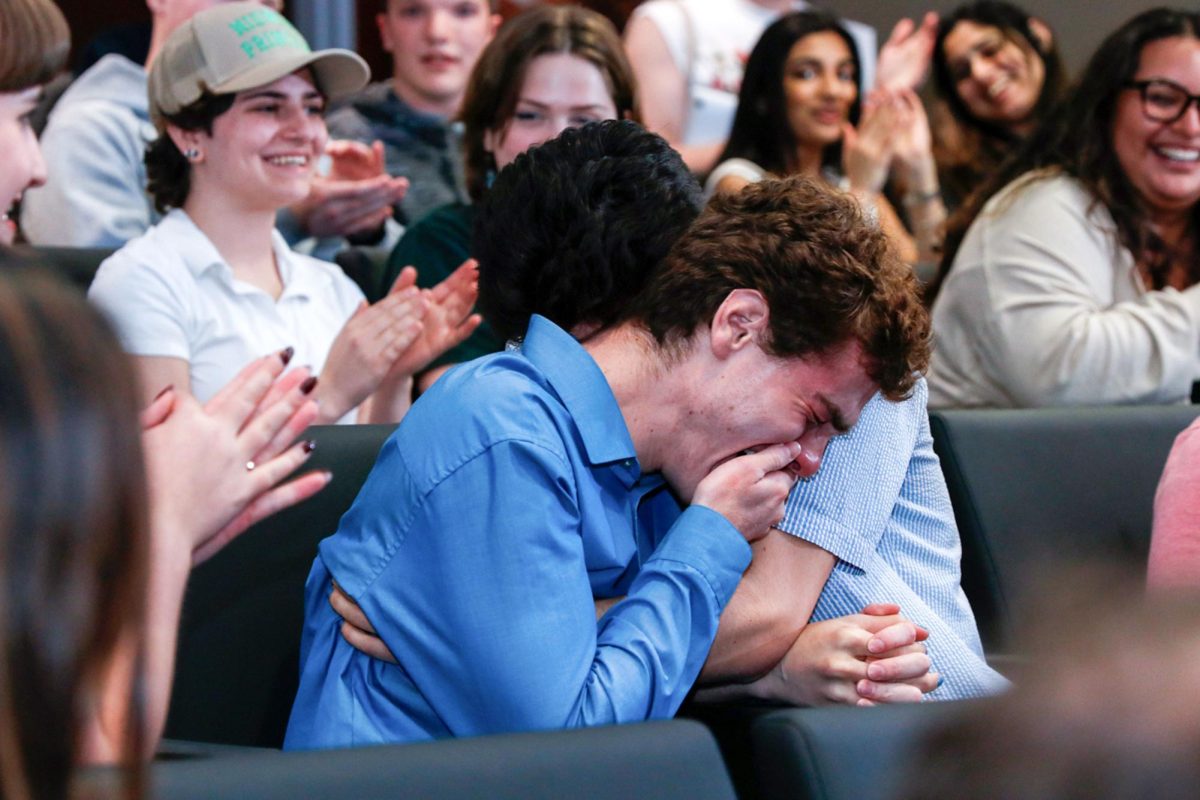The Student Association Senate established five new caucuses this month to advocate for historically underrepresented groups and draw up yearlong temperature reports.
SA senators passed the Identity Caucus Structure Act in late August, establishing guidelines for the five caucuses that formed this month representing female, Latino, first generation and interfaith students and those with disabilities. SA Sen. Jovawn McNeil, ESIA-U and the chair of the diversity and inclusion assembly, said the caucuses will engage with constituents via surveys and town halls to compile yearlong reports outlining how GW can improve support for these groups.
“On a lower level, we need to focus on things that this SA should be doing better to advocate for the groups, how organizations – which are the community hubs for these universities – can be doing better to advocate for and really create a community for them,” McNeil said.
The five caucuses joined the Black Senators’ Caucus established in fall 2019 and the LGBTQ+ and Asian Pacific Islander Desi caucuses established last month. McNeil said more than 20 members, both SA and non-SA, have joined the new caucuses.
He said the identity caucus legislation also establishes “clear” guidelines for the structure of SA caucuses, which state that all members of the GW community are eligible to participate in these bodies – even if a student is not involved in the SA.
“I wanted it to be really fleshed out and describe that all students in the University should have the ability to join different caucuses because they are advocating for ideas that represent you,” he said.
SA Sen. Sam Packer, CCAS-U and a member of the diversity and inclusion assembly, said while caucus members focus on advocating for their respective groups, the SA as a whole can work on more general policies, like improving administrative support during the remote semester.
“These caucuses are going to provide a space for people – LGBTQ+ people, Black people, Asian American people – all these different groups to have a place to specifically focus on their issues in the context of the pandemic and just as University students without always being talked over by people who think that broader COVID-related issues are more important to focus on in the committees,” Packer said.
Andrea Grimaldo, the chair of the Latinx caucus and a member of the diversity and inclusion assembly, said the caucuses allow underrepresented students to share their own experiences, like challenges for a non-White student studying at a predominantly White institution like GW. She said these spaces will allow caucus members to directly bring concerns to the full SA Senate and eventually to administrators.
She said the caucus will “ideally” meet once or twice per month and host virtual meetings with the Latino community to create “vulnerable” spaces for students to feel safe talking about any of their concerns that administrators or non-ethnic students may overlook.
Grimaldo added that she hopes the caucus serves as a space for students to find community.
“I want more Latinx-identifying students to get involved in voicing their concerns, opinions and ideas as students at GW,” Grimaldo said in an email. “If you see students that look like you, having a similar identity, wanting to amplify an underrepresented group, then you are more likely to join in.”
Yan Xu, the chair of the first-generation caucus and a first-year undergraduate senator, said members of the group will meet later this week for their first meeting to discuss their priorities for the year. He said he will reach out to other student groups like First Gen United to develop the most effective initiatives to work with first-generation students.
Xu said he intends to expand the Hippo Handbook, a document created two years ago that compiles financial resources and advice for navigating GW, to include specific tips for coping with college as a low-income or first-generation student. He said the caucus will allow every first-generation student’s concerns to be heard, adding that their experiences and backgrounds are varied.
“I believe personally that my experience as a first-generation student does not apply to others because everyone has a unique experience,” Xu said. “They have a unique point of view.”








